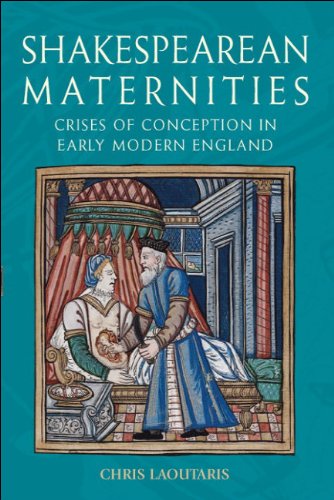

Most ebook files are in PDF format, so you can easily read them using various software such as Foxit Reader or directly on the Google Chrome browser.
Some ebook files are released by publishers in other formats such as .awz, .mobi, .epub, .fb2, etc. You may need to install specific software to read these formats on mobile/PC, such as Calibre.
Please read the tutorial at this link: https://ebookbell.com/faq
We offer FREE conversion to the popular formats you request; however, this may take some time. Therefore, right after payment, please email us, and we will try to provide the service as quickly as possible.
For some exceptional file formats or broken links (if any), please refrain from opening any disputes. Instead, email us first, and we will try to assist within a maximum of 6 hours.
EbookBell Team

5.0
30 reviewsThis study looks at the epistemological significance of maternity in early modern England. It reaches beyond the domestic sphere of the rituals of childbirth, midwifery and wet-nursing and the dominant male discourses articulate in early conduct manuals, sermons and obstetrical tracts. In this book maternity is put centre stage relation to the work of Shakespeare.
Exploring "anatomy" in Hamlet, "natural history" in The Tempest, 'demonology' in Macbeth, and "heraldry" in Antony and Cleopatra, this book reveals the ways in which the maternal body was figured in, and in turn contributed towards the re-conceptualization of, bodies of knowledge. The relevance of the maternal to early intellectual, aesthetic, and scientific disciplines, Laoutaris argues, makes itself felt when crises overturn the desired outcomes of birth and nurture. Instances of tragic intervention& mdash;such as disease, bewitchment, monstrosity, and death& mdash;expose the potentially destabilising power of maternity, dismantling the epistemological certainties with which the maternal body had been invested in the interests of masculine legitimation. Shakespeare resists a monolithic concept of motherhood, presenting instead a range of contested "maternities" which challenge those disciplines whose distinctive "ways of knowing" authorized a view of creation which was exclusively patriarchal.
Key Features
*Provides a new interpretation of a subject which is becoming increasingly popular among Shakespeare scholars, cultural and medical historians, and feminist critics.
*Focuses on four of Shakespeare's best-loved plays ( Hamlet, The Tempest, Macbeth, Antony and Cleopatra).
*Presents striking visual material which forms a central component of the book's critical methodology.
*Offers an interdisciplinary approach to the study of maternity, encompassing research methods drawn from a range of academic disciplines, including literary studies, gender studies, the history of art, archaeology, and the history of the sciences.